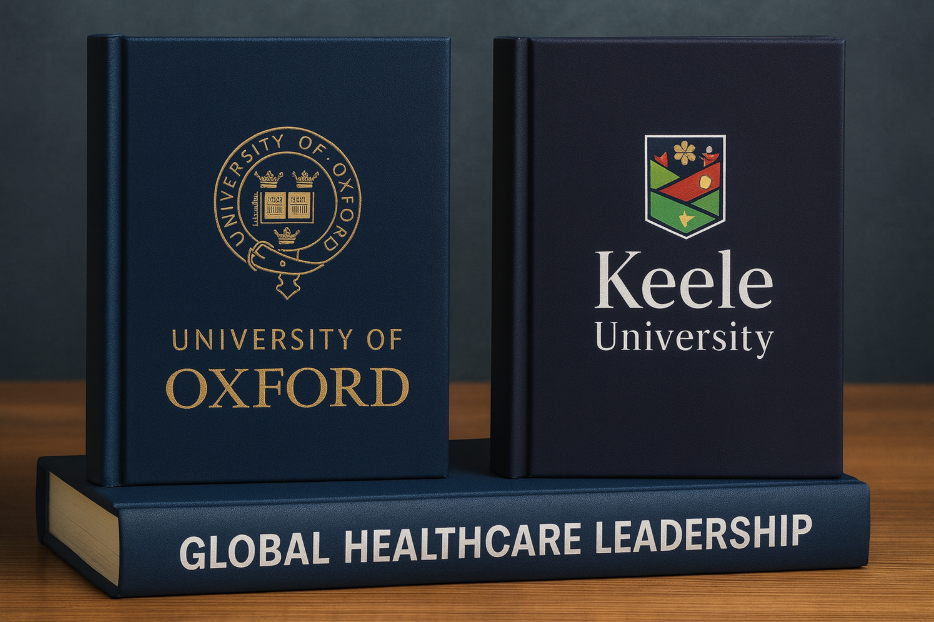

Advancing Global Healthcare Leadership: One Year On
I often reflect on how the value of studying at Oxford is found in the combined experience of the rigorous academic programme, the joy of engaging with world-class professors and fellow cohort members, and the immersive experience of the city itself. Whether in the historic Bodleian Library, in the depths of tutorial discussions, or walking past centuries-old colleges, one feels the weight of tradition and the inspiration to contribute to its legacy.
In August 2024, I submitted my dissertation for the Master of Science in Global Healthcare Leadership, a joint programme of the Saïd Business School and the Nuffield Department of Primary Care Health Sciences at the University of Oxford. A year later, I am reflecting on the work, the insights it generated, and the opportunities that followed.
My dissertation, now published in the Oxford University Research Archive (ORA), focused on how postgraduate global healthcare leadership programmes can better prepare non-clinical executives. Specifically, it examined how evidence-based practice competencies, bringing together the best available research, professional expertise, and patient values, can be more fully integrated into leadership education.
Why this research matters
Healthcare systems worldwide are becoming increasingly complex. While leadership training often targets clinicians, there is a pressing need to equip non-clinical executives with the ability to make decisions grounded in evidence.
Through a textual content analysis of 114 programmes across 108 universities, the study identified a significant gap: many curricula under-emphasise evidence-based practice. Of these, nine programmes in the United Kingdom centred on global healthcare leadership and management, but only two at the University of Oxford and Keele University offered postgraduate study specifically in global healthcare leadership. This gap has real-world implications for how leaders navigate uncertainty and complexity in healthcare.
Key conclusions
- Global Healthcare Leadership should be recognised as a distinct academic discipline.
- It is inherently interdisciplinary, integrating global healthcare, global leadership, and evidence-based practice.
- Preparing executives who are scholar-practitioners capable of bridging research and leadership practice is essential for the future of healthcare.
Sharing the findings in Prague
At the beginning of September 2024, shortly after completing the dissertation, I had the privilege of presenting these findings at the Global Evidence Summit in Prague. The experience underscored the growing recognition of evidence-informed leadership as a critical driver for change in global healthcare systems.
For those interested, I have made the presentation slides available:
Read the full dissertation
The full text of my dissertation is available in the Oxford University Research Archive (ORA). You may also search for “Shawn Mathis” and open the thesis Advancing Global Healthcare Leadership: Enhancing Evidence-Based Practice Competencies in Postgraduate Programmes for Non-Clinical Executives.
Into the Future of Global Healthcare Leadership
This dissertation was only the beginning of a much larger journey. The conversations it has sparked and the collaborations it has opened point towards an urgent need for new ways of thinking about leadership in healthcare. As global challenges continue to evolve, I remain committed to advancing the dialogue on how leaders, both clinical and non-clinical, can be better prepared to shape evidence-informed, resilient, and equitable health systems.

